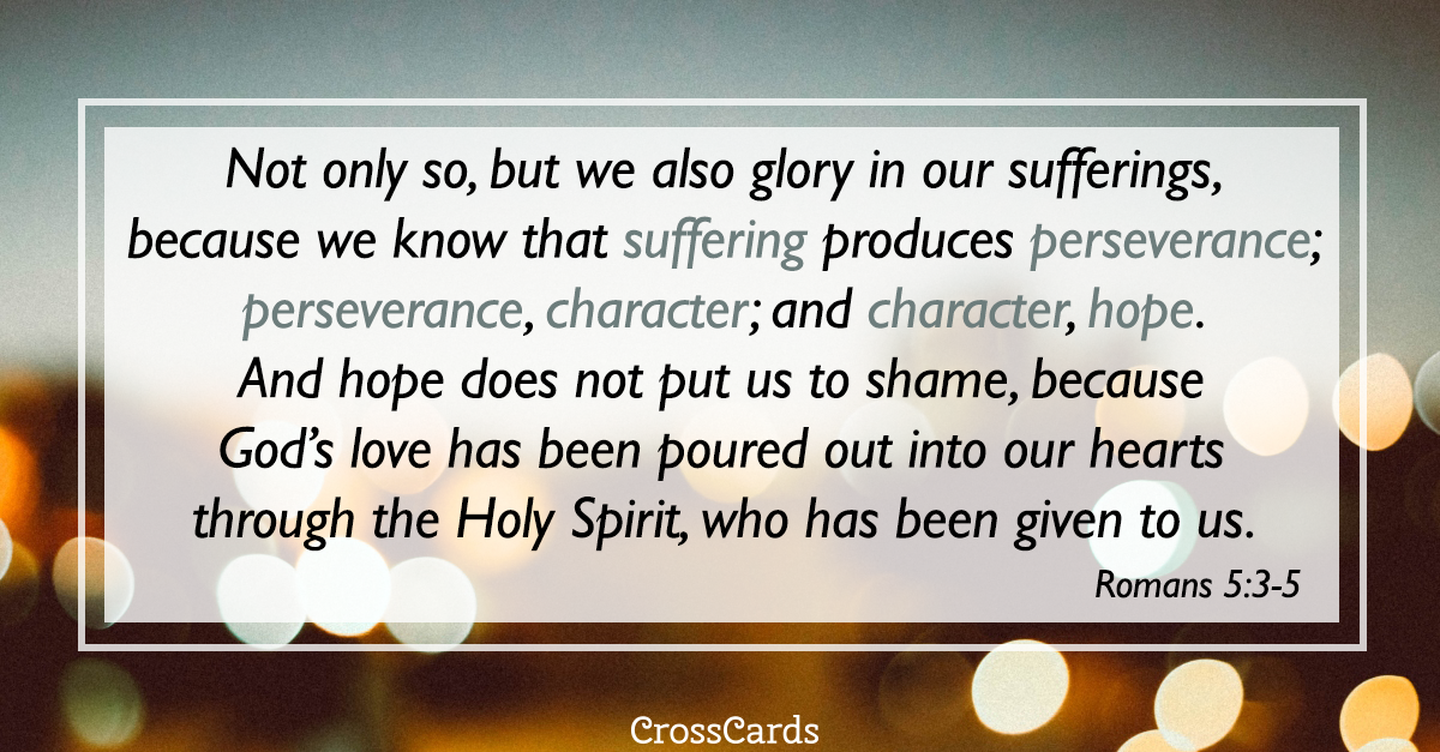The Bible gives us the word “hope” to hold onto all throughout Scripture. A quick online search will show you that “hope” appears nearly 100 times in both the Old Testament and the New Testament. But because we know God’s word is alive, not just letters on a page, what does the Bible say about hope? Is hope something we can trust, believe, and build upon?
Let’s look at some examples in Scripture that reveal 6 characteristics of the biblical meaning of hope.
1. Hope Is Expectant
In the Old Testament, two Hebrew words, qawa and batah are used to indicate trust in God to not disappoint us. You can find qawa within biblical prayers that express belief that God will transform hopes into reality.
This hope isn’t casual or laced with wondering. It’s anticipation for what God will do.
The Psalms are replete with hope in God for deliverance. Isaiah 40:31 assures us those who hope in the Lord will renew their strength. Even Job, in his inconceivable situation, proclaims “Though he slay me, I will hope in him.” This hope clearly isn’t deterred by doubt about God’s power and goodness—it’s certain, no matter what.
As the Old Testament moves toward the New Testament, God shares his plan to raise the dead and bring everlasting life. Baker’s Evangelical Dictionary explains that now hope takes on a next-level view of a world beyond any of our worldly troubles. And that is our hope of salvation, delivered in the New Testament.
“But I will hope continually and will praise you yet more and more” (Psalm 71:14).
“And you will feel secure, because there is hope...” (Job 11:18).
“Therefore, preparing your minds for action, and being sober-minded, set your hope fully on the grace that will be brought to you at the revelation of Jesus Christ” (1 Peter 1:13).

Photo credit:©Getty Images/Motortion
2. Hope Demonstrates Trust in God Forever
Baker’s Dictionary also points out that Scripture warns us many times about putting our hope, or trust, in anything other than God. In the Psalms, Jeremiah, Hosea, and Isaiah, we’re reminded not to trust in riches, idols, foreign powers, military, princes, or even other humans.
To hope in the Bible is to firmly place your trust in what God says. It’s not an, “oh, I hope so,” but rather, “I hope because he said so.”
The New Testament outlines specifics of God’s promises that we place our hope in: salvation, resurrection, and the redemption of our bodies.
“... putting on faith and love as a breastplate, and the hope of salvation as a helmet” (1 Thess. 5:8).
“...I stand on trial because of the hope of the resurrection of the dead” (Acts 23:6).
“Not only so, but we ourselves, who have the firstfruits of the Spirit, groan inwardly as we wait eagerly for our adoption to sonship, the redemption of our bodies” (Romans 8:23).
3. Hope Is Foundational to Faith
The clearest expression of this I know in the Bible is in Hebrews:
“Now faith is confidence in what we hope for and assurance about what we do not see” (Hebrews 11:1).
This accompanies the biblical figures who comprise the “hall of faith,” including Abraham. Abraham had no idea what God’s plan was...couldn’t even imagine, and hadn’t even seen. But his hope was steady. It was placed firmly in God’s promise of an inheritance.
From the beginning, God was instilling, calling forth, and proving hope to be foundational to our faith. Just as our forefathers walked by faith, we too can obey God’s leading because we are confident in what we hope for.
“Against all hope, Abraham in hope believed and so became the father of many nations, just as it had been said to him, ‘So shall your offspring be’” (Romans 4:18).
“For in this hope we were saved. Now hope that is seen is not hope. For who hopes for what he sees?” (Romans 8:24).
4. Hope Is Not a Fleeting Feeling
Hope is how we’re able to feel peace or joy. Hope doesn’t just bubble up like an emotion in surprise. It sustains us through any surprise.
When we accept the gift of God’s finished work to reconcile us to him, we base our lives on the hope of God’s higher ways and his greater plan. So, if we ever feel scared or worried, it is this biblical hope that carries us.
Biblical hope isn’t because things are all hunky-dory. It’s celebrating in the midst of tribulations, “knowing that tribulation brings about perseverance; and perseverance, proven character; and proven character, hope; and hope does not disappoint...” (Romans 5:3-5).

Photo credit: SWN Design
5. Hope Isn’t a Gamble
The NAS New Testament Greek Lexicon shows that the transliteration of hope, elpizo, means to wait for salvation with joy and full confidence. The forgiveness and redemption we hope in has already been proven and recorded in the Bible.
The hope of Jesus’ return and eternal life is as sure as the prophesies already realized and promises kept in his Word. Hope in the New Testament means looking to the future with assurance. Because we know Jesus, we know we have hope.
“In his name the nations will put their hope” (Matthew 12:21).
“Let us hold fast the confession of our hope without wavering, for he who promised is faithful” (Hebrews 10:23).
“Through him we have also obtained access by faith into this grace in which we stand, and we rejoice in hope of the glory of God” (Romans 5:2).
6. Hope Is a Gift from God
Hope isn’t up to us to muster from within. Hope is a gift, deposited into us by the Holy Spirit. In Jeremiah, God was revealing his plan to give us this hope forever. Not only for deliverance from Old Testament trials or enemies, but for a new life beyond our wildest imaginations.
Our hope is placed in a gift we simply cannot achieve on our own. We hope because God promises we will enter into “the inner place behind the curtain,” (Hebrews 6:19), and it is indeed a sure and steadfast anchor for the soul.
“’For I know the plans I have for you,’ declares the Lord, ‘plans to prosper you and not to harm you, plans to give you hope and a future’” ( Jeremiah 29:11).
“So that by two unchangeable things, in which it is impossible for God to lie, we who have fled for refuge might have strong encouragement to hold fast to the hope set before us” (Hebrews 6:18).
“And hope does not put us to shame, because God’s love has been poured out into our hearts through the Holy Spirit, who has been given to us” (Romans 5:1-5).
The Incredible Gift of Hope
God has given us the gift of hope. It is as certain and foundational as the fact that he gave us life. Hope believes that even death cannot hold us from God’s great eternal plan, and it calls us through everything the world might hand us to dash our hopes.
But biblical hope is not able to be dashed. It holds tight to the Deliverer who delights in the hope we have.
“...the Lord delights in those who fear him, who put their hope in his unfailing love” (Psalm 147:11).
Sources
Three Things Remain: What Is Hope?
5 Things the Bible Says about Hope
Related articles
10 Hopeful Verses for an Uncertain Future
What is Hope and Why Is It so Crucial to Our Faith?
7 Hopeful Reasons to Live with Eternity in Mind
Photo credit: ©Getty Images/phive2015
Lia Girard is a seasoned writer and voice artist who formerly served as the Faith Editor for Crosswalk.com. She is the author of Wisdom at Wit’s End: Abandoning Supermom Myths in Search of Supernatural Peace, and enjoys spending time with her husband and grown children or walking in the woods with God.


.jpg)
